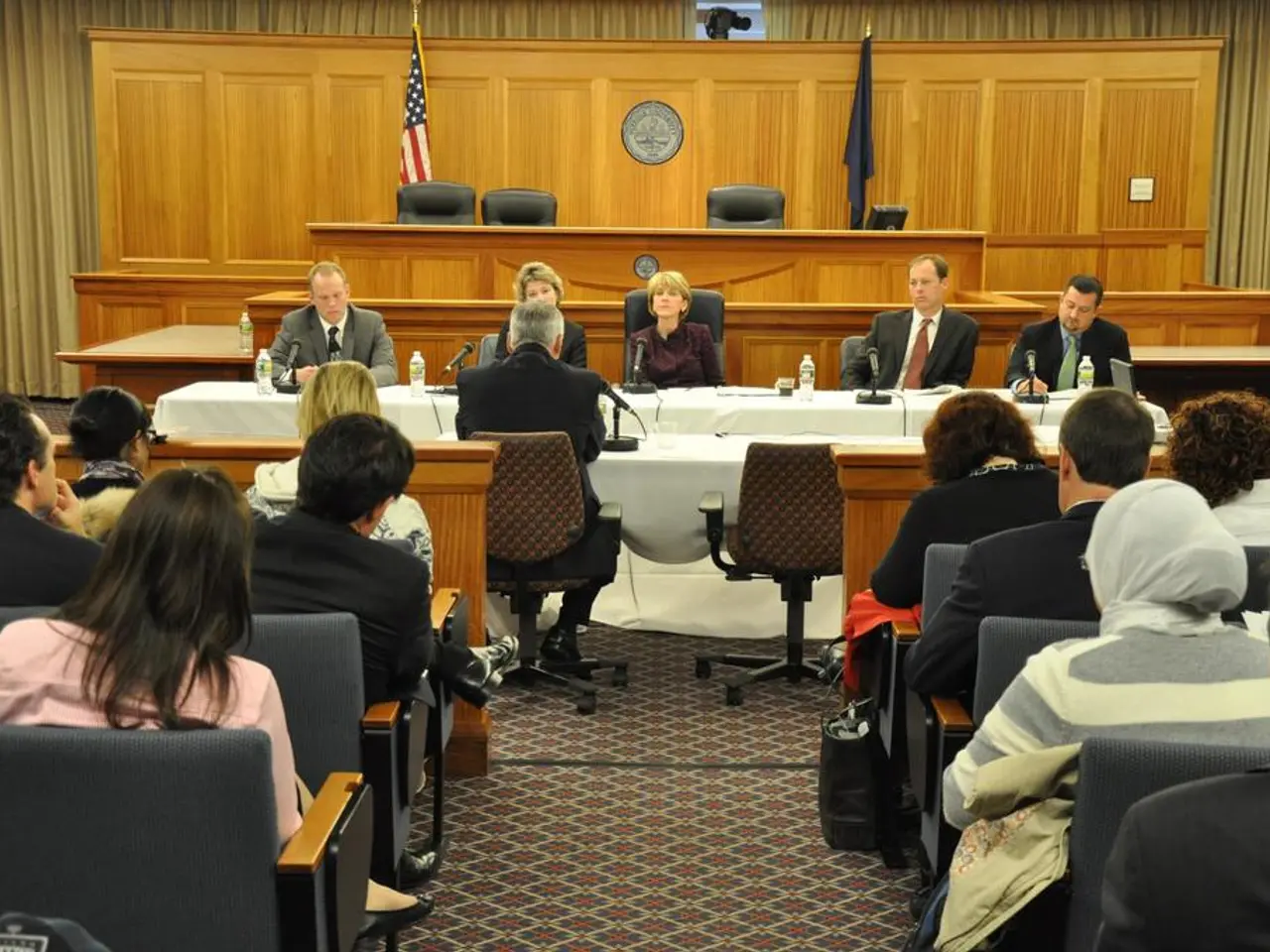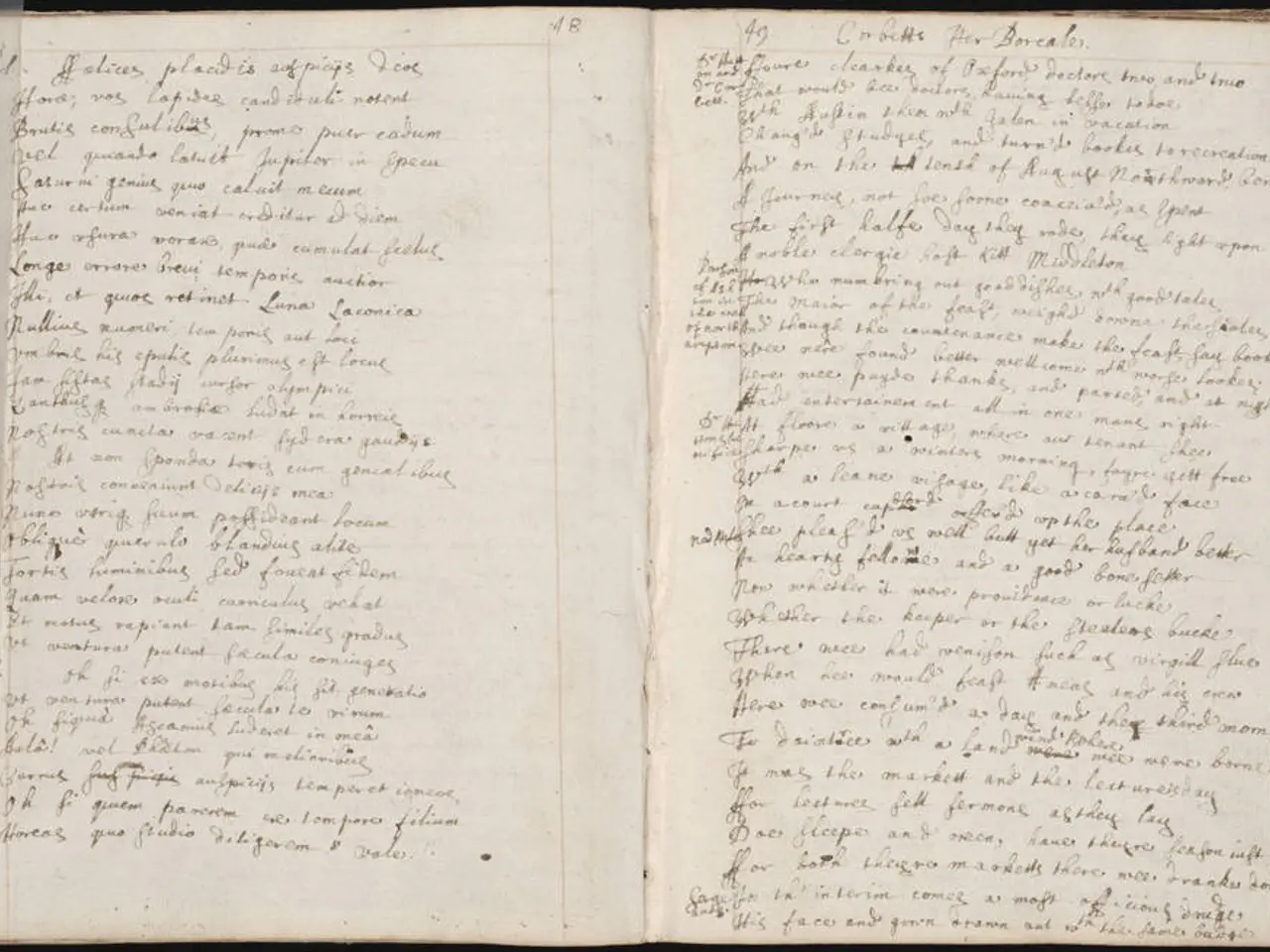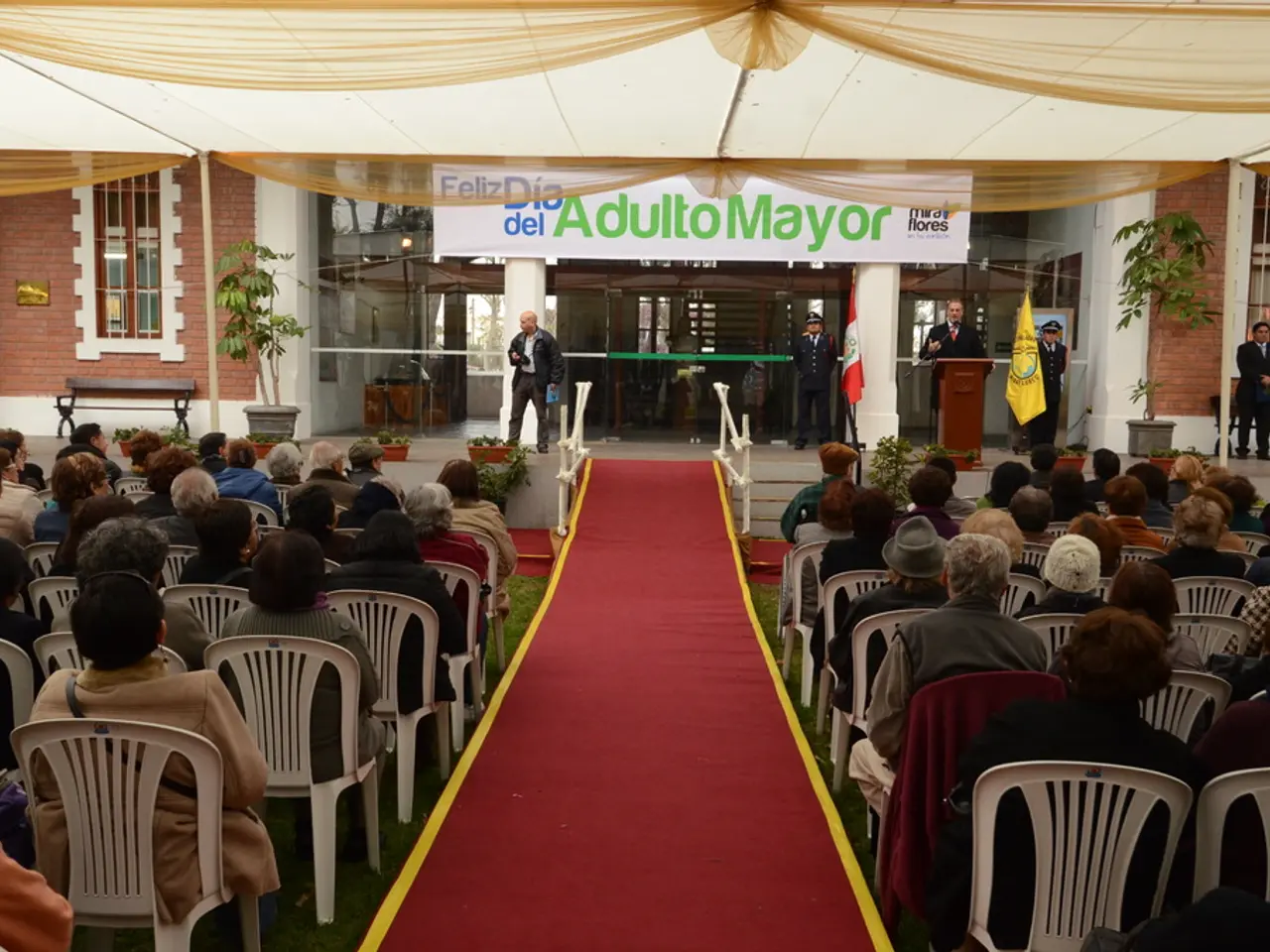Japanese Parliament Concludes Five-Day Additional Meeting
Japan's Diet Concludes Extraordinary Session, Focusing on Appointments and Tariff Deal
Japan's parliament, the Diet, concluded a five-day extraordinary session on August 5, 2025. The session, which was called to address specific issues, primarily focused on the appointment of the president and vice president of the House of Councillors and the Japan-U.S. tariff deal [1][4].
The ruling Liberal Democratic Party (LDP) and its coalition partner Komeito no longer hold a majority in either chamber, presenting a challenge for the government as it navigates these key issues [1][4].
The session began with the budget committees of both chambers engaging in intensive deliberations on the Japan-U.S. tariff deal, which was deferred from a previous session [1]. However, a full-scale confrontation between ruling and opposition parties over the deal was postponed until the next extraordinary session expected in autumn [1].
Prime Minister Shigeru Ishiba took part in these deliberations, emphasizing the importance of steadily implementing the tariff agreement despite external complications. He pledged efforts to mitigate the impacts on the diverse range of Japanese exports to the U.S. [5].
In addition to the tariff deal, the session saw cooperation between ruling and opposition camps to abolish the provisional gasoline tax by the end of the year. The tax, a 25.10 yen per liter levy, is a longstanding levy, and its removal could reduce tax revenue significantly while responding to opposition demands from recent election promises [3][4].
Despite losing majority control, the LDP refrained from submitting no-confidence motions against the cabinet, while internal party pressures continue around Prime Minister Ishiba's leadership amid election setbacks [1][4][5].
The session concluded without a resolution on the no-confidence motion against Prime Minister Shigeru Ishiba's cabinet, as it was not submitted by the main opposition party. The session did, however, result in leadership appointments in the upper house [1].
The extraordinary Diet session served as a precursor to more substantive debates on the Japan-U.S. tariff issues, which are anticipated in the autumn session.
References:
[1] NHK World, (2025). Extraordinary Diet session concludes without resolution on no-confidence motion against Prime Minister Shigeru Ishiba's cabinet. Retrieved from https://www3.nhk.or.jp/nhkworld/en/news/20250805_06/
[2] Kyodo News, (2025). Japan's Diet to hold extraordinary session to address appointments, tariff deal. Retrieved from https://english.kyodonews.net/news/2025/07/185c74d578c7-japans-diet-to-hold-extraordinary-session-to-address-appointments-tariff-deal.html
[3] Asahi Shimbun, (2025). Diet agrees to abolish provisional gasoline tax by year-end. Retrieved from https://www.asahi.com/articles/ASP1M74824484.html
[4] Mainichi Shimbun, (2025). Extraordinary Diet session concludes, focusing on appointments and tariff deal. Retrieved from https://mainichi.jp/english/articles/20250805/p2a/00m/0na/015000c
[5] Yomiuri Shimbun, (2025). Prime Minister Shigeru Ishiba emphasizes steady implementation of tariff agreement during Diet session. Retrieved from https://www.yomiuri.co.jp/politics/20250803-OYT1T70220/
- The upcoming autumn session of Japan's Diet is expected to feature a full-scale confrontation between ruling and opposition parties over the Japan-U.S. tariff deal, which was deferred from the previous session [1].
- Migration policies and legislation have been absent from the recent extra-parliamentary activities, but politics and general news have frequently reported on war-and-conflicts' influence on migratory trends across the globe [2].
- In light of foreign policy challenges, several politicians presented arguments for increasing the funding for humanitarian aids aimed at aiding the displaced populations, presenting photos of refugees as evidence during a Senate hearing on migration and war-affected nations [3].







